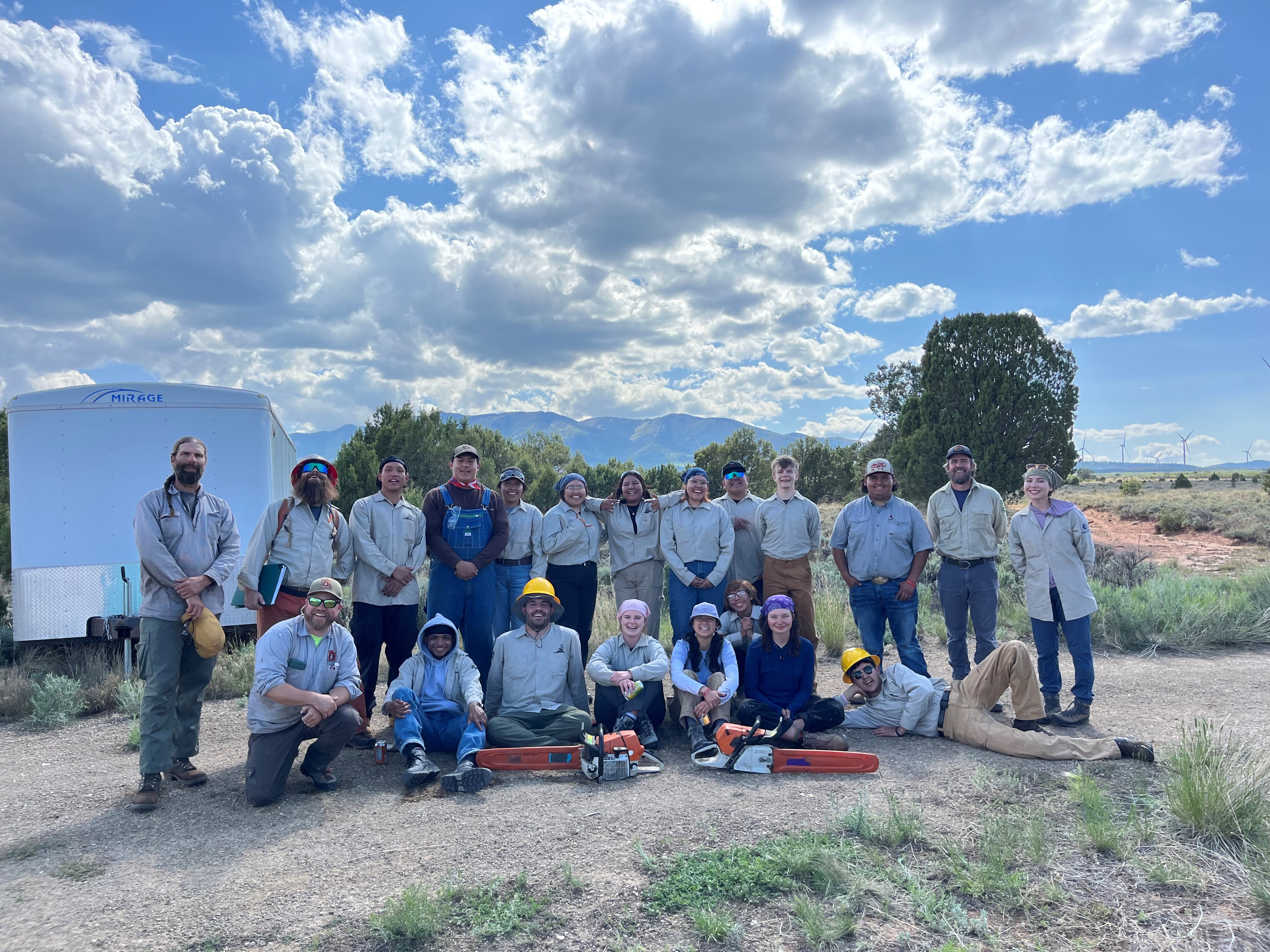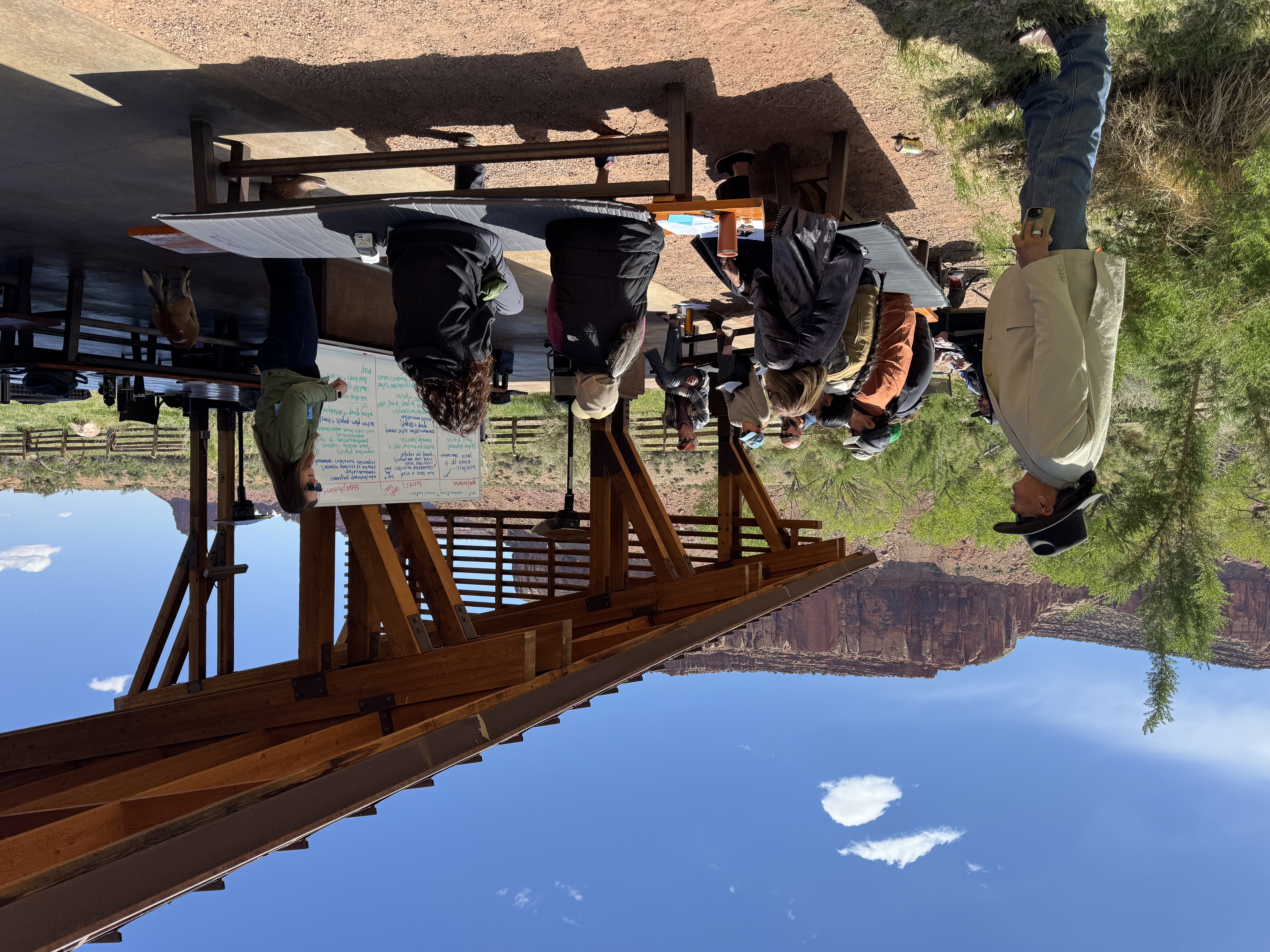Canyon Country Youth Corps

Bears Ears Partnership operates the Canyon Country Youth Corps, which provides youth and young adults opportunities to complete service projects in the Four Corners region. CCYC crew members improve the health and accessibility of these lands through projects such as building and maintaining trails, fuel mitigation, fence construction and maintenance, invasive species removal, and habitat restoration.
CCYC primarily hires young adults from the Four Corners region - primarily in San Juan County, UT, a diverse county with a large Indigenous population. On average, 50-75% of crew members and leaders come from Indigenous nations.
Working on CCYC crews provides participants with improved work readiness, employment prospects and economic independence. Many crew members have gone on to be crew leaders and full-time staff with CCYC, and then on to find positions with the land management agencies we work with, at both the federal and state levels.
CCYC is currently hiring crew members - learn more!
Bears Ears Conservation Partnership

BEP is one of the founding organizations of the Bears Ears Conservation Partnership (BECP), a historic coalition formed in 2024 to collaboratively heal and caretake the living watersheds across the Bears Ears landscape and the San Juan River corridor. Along with BEP, partner organizations include Ute Mountain Ute Tribe, Pueblo of Zuni, Hopi Tribe, Navajo Nation, Ute Indian Tribe, The Bears Ears Inter-Tribal Coalition, The Nature Conservancy, RiversEdge West, United States Forest Service, Bureau of Land Management, and National Park Service.
BECP is leading a multi-year collaboration to complete the largest watershed restoration project in the history of the Manti-La Sal National Forest. By centering co-management and Traditional Ecological Knowledge alongside multiple uses and western science, this vital conservation project will have far-reaching impacts to protect the cultural and ecological resources of this 1.4-million-acre mountain range.
Cultural Site Preservation & Indigenous Engagement
The conservation program works to reimagine cultural preservation as an opportunity to reconnect Indigenous communities to cultural sites within the Bears Ears region. Our goal is to enrich the living connection to the land while mitigating potential impacts as recreation and visitation in Bears Ears increases.
This work begins through engagement and discussion with Indigenous partners to understand the significance of a site. When one of our partner Tribes or Pueblos have a unique connection to a site - based on history, cultural knowledge, or sacred practices - we help bring elders and leaders to the site for a visit. Ethnographic research developed only for the visiting Tribe or Pueblo helps document the experience. Archaeologists and conservation staff discuss the site construction plans with the visiting Tribe or Pueblo. Once plans are approved, Indigenous youth (from the respective Tribe or Pueblo) work on the cultural site to ensure it can withstand visitation or other use impacts.
Since 2017, much of this work has been done in partnership with Ancestral Lands Conservation Corps (ALCC). Together, we continue to bring young folks from the region’s Tribes and Pueblos onto the landscape to engage in cultural site preservation and work alongside Woods Canyon Archaeological Consultants to complete surveys and assessments.
BEP’s conservation program ultimately aims to create Indigenous-led cultural site integrity. By continuing to engage our Indigenous partners throughout the entire process of cultural site preservation, we aim to meet that goal.
Interested in volunteering with our CONSERVATION program?
There are many opportunities to volunteer with BEP’s conservation program! Projects include fencing and trail-building, and other similar tasks. We have opportunities available for both individuals and groups (from schools, colleges, NGOs, businesses, etc). BEP is always looking for both individuals and groups to go into the field. Contact our Conservation Director Britt Hornsby at


